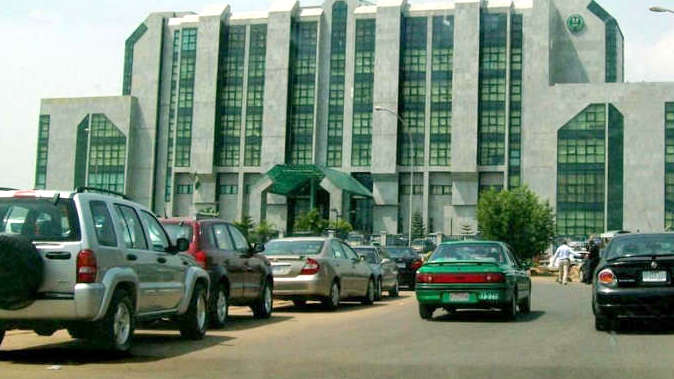The CAC is deploying artificial intelligence to slash registration times from days to minutes, promising to transform Nigeria’s business landscape and formalize millions of enterprises
Kano, Nigeria — In a sweeping digital transformation that could reshape Nigeria’s economic landscape, the Corporate Affairs Commission has launched an artificial intelligence-powered registration portal that promises to incorporate businesses in under 30 minutes—a dramatic reduction from the previous 24-hour to multi-day process.
The announcement, made by Registrar-General and CEO Hussaini Ishaq Magaji at the Commission’s 2025 Stakeholders Forum in Port Harcourt, marks what officials are calling a “game-changer” for doing business in Africa’s largest economy.
From Email-Simple to Enterprise-Ready
The new AI-driven system reimagines every step of the registration process. Name reservation, once a bureaucratic hurdle that could take days, now operates with the simplicity of opening an email account. The AI intelligently suggests alternative names when preferred options are unavailable and grants real-time approvals, eliminating traditional bottlenecks that have frustrated entrepreneurs for decades.
Perhaps most revolutionary is the platform’s ability to facilitate business registration using only the National Identification Number of a director or proprietor—a feature that dramatically lowers barriers to formalization for Nigeria’s estimated 40 million micro, small, and medium enterprises, fewer than 10% of which are currently registered.
“The name reservation process is now as simple as opening an email account,” Magaji stated. “With AI integration, approvals and suggestions are processed in real-time.”
AI Agents: The Next Frontier
But the Commission isn’t stopping at registration. During the organization’s 2025 Management Retreat in Kaduna this week, Magaji unveiled plans for the next phase of AI implementation—one that will see AI agents handling verification and operations across the regulatory spectrum.
The Commission now processes over 11,000 name reservations daily, completed within one minute, with company certificates issued within minutes. This dramatic efficiency gain, Magaji explained, comes from the successful deployment of AI technologies already integrated into the system.
The upcoming phase will introduce dedicated AI agents for three critical functions:
Compliance Verification: A CAC-branded AI tool will automatically check compliance with existing laws and regulations, moving beyond human-dependent reviews to real-time monitoring.
Registry Operations: Another AI system will review and approve or reject registry applications in real time, addressing a persistent backlog that had swelled to over 7,000 applications earlier this year.
Customer Service Enhancement: The Commission’s call center operations will be transformed by AI capable of reading and processing emails, detecting duplicates, and forwarding messages to appropriate units within minutes—addressing one of the most frequent complaints from business owners who reported payments failing to reflect and applications stalling indefinitely.
A Digital Ecosystem Taking Shape
The AI portal represents just one pillar of CAC’s broader modernization strategy. The Commission is preparing to launch a mobile application in the final quarter of 2025, allowing business owners to track applications, manage transactions, and access company data directly from their smartphones.
Security features are also being enhanced. Two-factor authentication and one-time password verification will soon be mandatory for all transactions, ensuring that no changes can be made to company records without the full consent and awareness of registered directors—a critical safeguard in an environment where corporate fraud has been a persistent concern.
The Commission is also forging strategic partnerships to expand access. Officials revealed they are reviewing over 100 requests from local and international super agents, including the Nigerian Inter-Bank Settlement System. Existing partnerships with fintech platforms like Opay, Palmpay, and Moniepoint will enable seamless registration directly from their systems, meeting entrepreneurs where they already conduct business.
The 50% Formalization Target
Behind these technological advancements lies an ambitious goal: formalizing 50% of Nigeria’s informal economy. With over 40 million MSMEs operating outside the formal system, the stakes are enormous. Formalization doesn’t just mean compliance—it unlocks access to finance, enhances investor confidence, and creates pathways for business growth that remain closed to unregistered enterprises.
The Commission has launched a free registration window to accelerate this transition, particularly targeting point-of-sale operators and other MSMEs. However, officials have made clear that sanctions for non-compliance are coming, with the CAC working alongside other regulators to impose penalties on businesses that fail to formalize.
Challenges Remain
While the AI portal addresses registration speed, industry experts caution that systemic barriers persist. The 2023 increase in minimum paid-up share capital for foreign companies to ₦100 million continues to pose difficulties for smaller international ventures seeking to establish operations in Nigeria.
The true test of the Commission’s AI transformation will be whether it can restore public trust after months of complaints about system failures, stalled applications, and delayed approvals. As Registrar-General Magaji himself acknowledged, the transition hasn’t been smooth.
“AI should be viewed as an ally that makes work more meaningful, reducing manual tasks and improving accuracy,” he told staff at the Kaduna retreat, emphasizing the technology’s role in detecting anomalies and ensuring accountability within corporate governance processes.
Global Implications
If successful, Nigeria’s AI-powered corporate registry could set a new benchmark for business regulatory agencies across Africa. The Commission’s approach—combining instant digital processing with compliance monitoring and tax identity linkage through NIN—represents a comprehensive reimagining of government-business interaction.
For Nigeria, improved ease of doing business could attract the foreign investment the country desperately needs. For entrepreneurs, it could mean the difference between operating in the shadows and building legitimate, scalable enterprises.
The Commission has set August 1, 2025, as the date when revised service fees will take effect to fund ongoing reforms. Whether the AI systems can deliver on their promise will become clear in the months ahead, as thousands of entrepreneurs test the new portal and millions more watch to see if Nigeria’s digital transformation can finally match its ambitions.
For now, at least, the message from the Corporate Affairs Commission is clear: the future of business registration in Nigeria is intelligent, instant, and AI-powered.
The CAC’s 2025 Management Retreat continues through October 18, featuring presentations on service delivery perspectives and the future of corporate governance in an AI-enabled environment.




